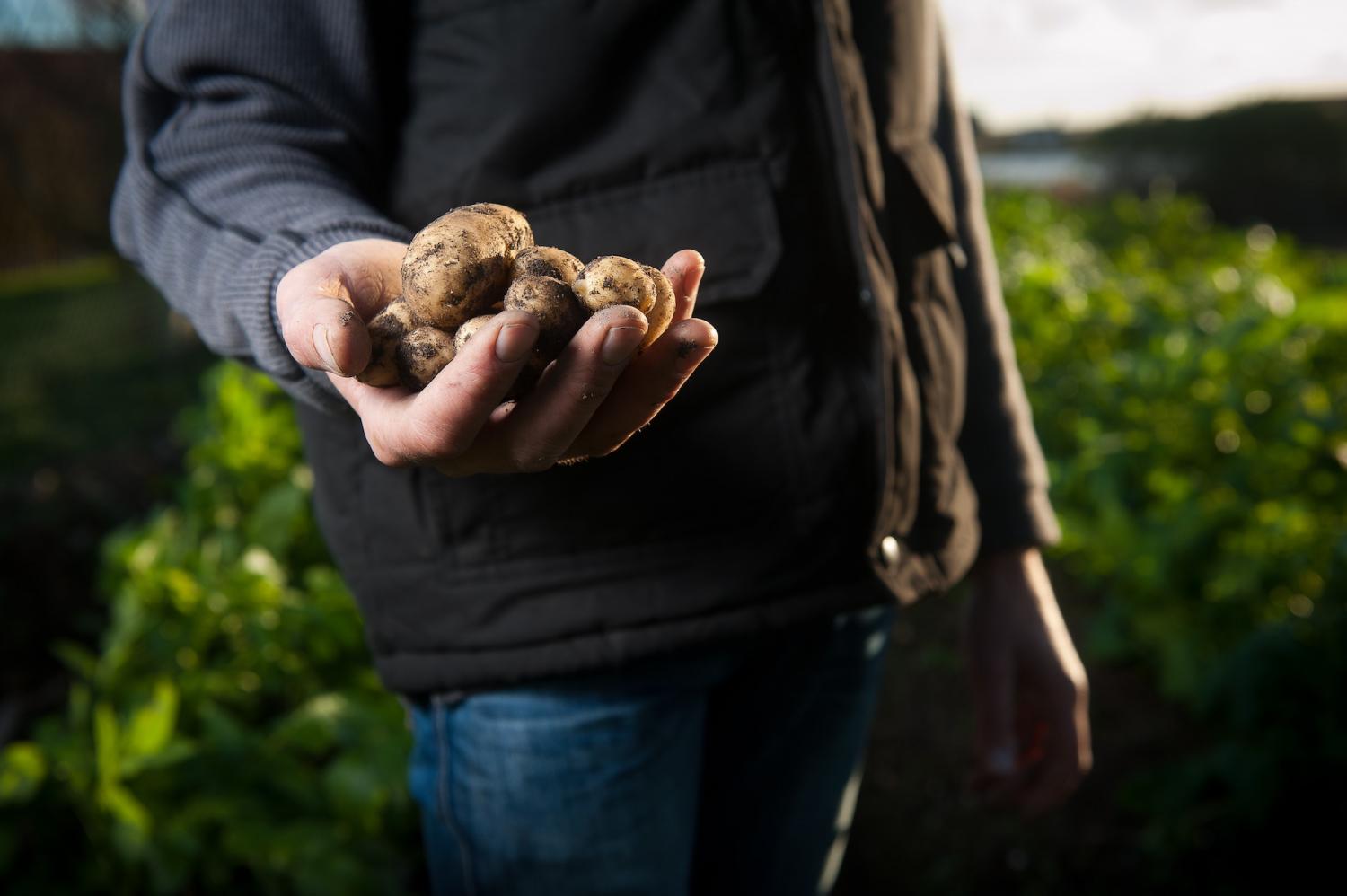Why Companies Don't Care About Climate Change


In 2009, I co-founded a company called CO2 IMPACT to develop high quality carbon offset projects in the Americas. While I have a Ph.D. in business, I have frequently been too focused on my values to justify the business case for a lower carbon footprint. I guess I care too much about what we are doing to the planet and what we are leaving behind for my son, Mateo.
Along the way, I have learned a painful lesson that hopefully can help other aspiring climate capitalists: most people and industry don’t really care about the planet or climate change. They care about things that matter to their pocket book or to their bottom line. I am of course exaggerating a bit as, for example, most of the Triple Pundit readers care about the environmental and social impacts of their activities, not just the financial.
Most of us noticed that Obama’s recent rhetoric about energy efficiency and renewables avoided the topic of climate change altogether. This is not because Obama suddenly doesn’t care about climate change. It is that he has learned what messaging works with the American people. Jobs, economy, jobs, oh yes, and did I mention jobs?
How we frame the issues and opportunities related to the low-carbon economy is incredibly important. Too many of us, myself included, wear our passion on our sleeves and focus on the wrong issues in trying to help engage a skeptical public to make the transition.
This is of course why Peter Byck developed a documentary, Carbon Nation, (which I blogged about here recently), a climate change solutions movie “that doesn’t even care if you believe in climate change.” This is also the reason why I co-wrote the forthcoming book, Climate Capitalism with Hunter Lovins. We hope that by removing the “debate” about climate change from the conversation and focusing on the profits, jobs and economic growth that can be achieved by making the switch to a low-carbon economy, we might have more of an impact on public discourse and private action.
When CO2 IMPACT first started promoting our services to the market, our messaging focused on our ability to help companies reduce their emissions and generate extra revenue by selling the carbon offsets into the market. My opinion now is that was definitely the wrong message. We now focus on showing how companies can save money, or make more money, by engaging in energy efficiency, fuel switching or methane capture projects. Oh yeah, and by the way you can make some additional revenue from offsets to improve the project ROI and grow your “green” brand at the same time.
Take our coal mine methane projects in Colombia. There have been two explosions from excessive gas in underground coal mines in Colombia this year killing 26 people. Last year more than 200 miners were killed in similar explosions. While there are socially responsible mining companies who are absolutely concerned about the health and safety of their employees, the best arguments to get clients to embrace coal mine methane capture projects are financial. Mitigate operational risks of explosions, gain access to the methane as a cheap, green energy source, reduce their operating costs from ventilation systems (if you drain much of the gas there is less ventilation requirements) and oh yes, reduce their climate impact and gain additional carbon offset revenue.
Think Latin American coal mines are the only companies who care more about their bottom line than their impact on climate change? North American companies, except for a few notable exceptions, are the same way. Many recent articles in Triple Pundit have rightly recognized Wal-Mart for its recent transition to being a climate leader, including a recent post in this series. Does anyone really think that Wal-Mart is doing this because they have suddenly become treehugging liberals? I don’t think so. They are doing it because they are saving money. And lots of it. And Wal-Mart, yes Wal-Mart, won the Aspen Institute’s 2009 Corporate Energy Efficiency Award because of this commitment.
GE has made major efforts to promote their low-carbon green solutions. Sure they use their campaign to build their green credentials, but mostly they are doing it to generate more green bills. The Ecoimagination program is generating more than $18 billion per year in revenues for GE.
In conclusion, my point is for all of us who care about the planet and want to be part of the transition to the low-carbon economy, we need to focus more on the economy part, and slightly less on the low-carbon part. That is the fastest way to get to 350ppm.
Twitter: boydcohen
Image credit: Francesco Ungaro/Pexels
How Do Organic Farmers Use Technology?


By Hunter Richards
Demand is on the rise for organic produce. A survey by the Organic Trade Association found that sales revenue from organic food in the U.S. had exploded to $25 billion by 2009 - twenty-five times that of 1990.
Organic farmers can’t use the same technology as conventional farmers - like pesticides and genetic engineering - to increase yields. There’s a misconception that they stubbornly shun technology, preferring age-old tradition over modern methods. But it’s not true. These farmers can use their understanding of natural processes - the mating habits of pests, for example - to optimize yields and care for their crops. The surprising results can make you wonder where to draw the line between technology and nature.
Organic Solutions: Software and Beyond
Jeff Birkby, Outreach Director for the National Sustainable Agriculture Information Service, recognizes technology’s broad potential: “To me, technology is neutral; it’s neither good nor bad. It’s how it’s applied that makes the difference.”
There must be a way for technology to help organic farmers. I began researching this article with software in mind because, unlike pest removal chemicals and other conventional farming technologies, data management tools don’t directly affect crops - organic farmers are free to use them. And the systems are certainly there - Farmigo for business data management is one example. The Georgia Institute of Technology is even developing a new user interface for soil moisture data software.
But I became fascinated at how organic farmers can apply specialized technology in their fields rather than just in the office. Unlike their conventional counterparts, organic farming technologies cooperate with ecosystems. It made me question the definition of technology.
Can Technology and Nature Cooperate?
Ted Quaday, Communications Director of the Organic Farming Research Foundation, clarified the issue when I spoke to him. “We’re taking new knowledge, new information, and transferring that into real practical solutions in the farm field . . . is that new, innovative technology? I would argue that it is.”
According to the definition that I found on Merriam-Webster’s website, Ted’s right:
tech·nol·o·gy (noun, \tek-ˈnä-lə-jē\) - the practical application of knowledge, especially in a particular area.
Who said technology had to involve spinning blades and steel? Organic farmers use new research in the field - it’s an alternative type of technology.
The Trade-offs of Technology
Pesticides, herbicides, and fertilizers save time and labor in conventional farming practices. But the resulting efficiency comes at a cost. The production, transport, and use of these substances threatens water quality and leaves a sinister carbon footprint. The runoff causes algal blooms in the Gulf of Mexico, draining oxygen from the surrounding area and killing nearby fish.
With more natural farming methods, organic farms avoid damaging the environment. These examples reveal how technology can help, even while adapting to natural processes:
Fertilization and Yield
To increase yields, conventional farmers use chemical fertilizers. But mechanical tools can be suitable alternatives. The roller crimper, a device dragged by a tractor through alfalfa and hay fields during harvest, breaks down the cell walls of plant stems to accelerate decomposition. This man-made tool increases soil fertility by speeding up the natural decomposition process - without artificial chemicals.
Another simple innovation that can increase yield quantity in organic farms is the hoop house, which is very much like a greenhouse - only easier, faster, and cheaper to build. Consisting of raised beds in a walled-off piece of land, it extends the growing season by protecting crops from bad weather and keeping them warm. More crops can then be produced for the local market, avoiding the need to import them from another location (which cuts down on potential carbon emissions). This research-oriented improvement helps farmers increase yields and benefit financially in a clean way.
Pest and Weed Control
Conventional farmers use potent substances in apple orchards to get rid of codling moths, tent caterpillars and other destructive pests. Organic farmers can’t use these chemicals because of their destructive side effects, but there are alternatives. Surround, a type of biodegradable clay, can be sprayed on apples to confuse insects. Once affected, pests no longer recognize the apples as food. The clay washes off and dissolves in rain, with none of the harmful effects of the more conventional methods.
Thanks to a better understanding of insect mating habits and chemistry, farmers can target and destroy pest populations without even touching the crops and soil. They can set up sticky traps, coated with female pheromones, that attract male flies and maggots. When they come in to mate, they become trapped and eventually die. Understanding the chemistry and deploying these traps required new research and designs, so it’s clearly a form of technology. It’s just not the giant robot with chainsaw hands that we all tend to imagine.
A Delicate Balance
Pure technology or not, organic farmers can merge nature and human creation to improve efficiency and protect produce. Adhering to strict standards has forced organic farming into creative action. Nature and technology, two apparently polar opposites, have seldom shared such a symbiotic relationship.
This was post was written by Hunter Richards, who blogs for Software Advice. The original article can be found here - Organic Farmers: Can They Be Tech Savvy?
Image credit: Unsplash
Cracking the Code: The Essence of Sustainable Development


It’s hardly news that after more than two decades of talk about the need for sustainable development, we humans continue to have a poor track record when it comes to achieving sustainable results. How can we implement change while up against the overwhelming current of business as usual? It will take a new perspective, new approaches and different means of leadership.
For the first time, a condensed & balanced triple-bottom-line set of defining articles, collectively entitled The Fractal Frontier - Sustainable Development Trilogy, is now available for your review. The trilogy examines the reasons for our past failures, a new scientific basis for the essence of achieving sustainable development in the future, the nine universal principles that must be built into any sustainable project, ways to educate, plan and lead teams to achieve sustainable results, and much more.
SLDI News & Commentary Update: Developing a Sustainable Oregon Coast
The southern coast of Oregon is a rare place on earth, where beautiful wild & scenic rivers tumble down through steep canyons, and the tallest and largest carbon-sequestering forests in the world on their way to a rocky coastline with wide stretches of sandy beach, before pouring out into the mighty Pacific ocean. Along the rugged coast are picturesque working ports, made of hillside homes, small waterfront cafe’s, vibrant art communities, and more parks per mile than anywhere in the USA.
The Port Orford Ocean Resource Team (POORT) has a mission to engage Port Orford fishers and other community members in developing and implementing a Port Orford Community Stewardship Area Plan that ensures the long-term sustainability of the Port Orford reef ecosystem and social system dependent on it. The Redfish Rocks area south of Port Orford has been designated a pilot marine reserve and a broader area of some 30 miles in length along the southern Oregon coast forming a unique 935-square-mile land and sea stewardship area is to protect terrestrial, freshwater, intertidal and ocean reserves. This model sustainability initiative is a prime example of a trend described in the current Oregon Planners Journal entitled Ecosystem Services: A new approach to planning that can help the profession to plan sustainably.
On February 11th, POORT will hold its 3rd annual Land-Sea Connection workshop to share healthy best practices with proactive agencies, NGO's and local stakeholders to improve collaboration within the stewardship area and encourage implementation of the Port Orford Marine Economic Recovery Plan. Located in the stewardship area headwaters along a 1000’ ridgetop overlooking old growth forest and the marine reserve, Ocean Mountain Ranch is a SLDI carbon-negative project that will provide for long-term yield of high-quality hardwood, softwood, and wildlife habitat while serving as a model organic forestry/grazing operation incorporating residential, agricultural, educational, recreational, and industrial activities to promote sustainable land development best practices on the southern Oregon coast by mixing nature, tradition, and economics for a sustainable future. You can watch a documentary preview of this ground-breaking eco-forestry project here.
Financing for ecosystem services is beginning to emerge from some compassionate climate capitalists who have been seeking out carbon offset projects that not only reduce carbon emissions but also have significant social, economic and/or environmental benefits in the communities where the projects are developed. These projects are often referred to as having co-benefits or some call them charismatic projects. Charismatic carbon projects are poised to experience significant growth because there is increasing demand from offset buyers because companies that buy charismatic offsets gain more brand value for buying them than if they had just bought garden variety offsets.
Feature Publication
The Fractal Frontier - Sustainable Development Trilogy
This trilogy of articles examines the essence of sustainability and presents some new perspectives on achieving sustainable results. Part I – Designing a Big Wheel for Civilization explores our checkered history regarding sustainability and provides a foundation of understanding for the future. Part II – Like Life Itself, Sustainable Development is Fractal presents new scientific understandings of economics, nature and social psychology and their impacts on sustainable development. Part III – The Universal Principles of Sustainable Development begins the process of defining the requisite outcomes in order to achieve sustainable results on any project.
Pass It Forward
In the Pass-It-Forward spirit, SLDI is gifting the information in the document, along with the SLDI Code™ sustainable development matrix, on behalf of the sustainable land development industry, to anyone interested in collaborating to achieve sustainable results.
It is important to note that the information contained in the document is universal in its application and need not be confined to land development projects.
Your participation and comments are welcome.
Image credit: Jesse Gardner via Unsplash
Interview: “Chief Mom” At Plum Organics


According to the EPA’s Guidelines for Carcinogen Risk Assessment children receive 50% of their lifetime cancer risks in the first two years of life. In past testing conducted by the Food and Drug Administration eight industry-leading baby foods were found to have measurable amounts of 16 pesticides, including three of which were consider to be carcinogens! It is due to facts like these and their growing dissemination via social media that the Green Economic Revolution is being lead by Concerned Caregivers (moms!) seeking to protect their loved ones.
Linking with Concerned Caregivers is a powerful “secret sauce” for many of the successful businesses in my network that are experiencing significant revenue growth. Here’s yet another example of such a business called the Nest Collective. Sheryl O’Loughlin, the company’s “Chief Mom,” is a former CEO of Clif Bar and a working mom. She and her company have “Pure From The Start™” as their mantra for their line of baby food called Plum Organics that are totally organic with no pesticides or chemicals.
Watch this video of Sheryl to learn Nest Collective’s best practices for growing green revenues while also addressing one of America’s most important issues, namely how to provide our children with a diet and environment that will sustain their future!
Image credit: Plum Organics via PR Newswire
Walmart's Geo Girl: Eco-Friendly Cosmetics for 8- to 12-Year-Olds


Walmart is rolling out Geo Girl, a new line of cosmetics in recyclable packaging for tweens (8- to 12-year-old girls) in March 2011. Walmart has hit all the cosmetic buttons: natural ingredients, sensitivity to young skin, low price point and recyclable packaging. It sounds good, except the target audience age range. Should 8- to 12-year-olds wear cosmetics?
If you are talking about the occasional silly dress-up day with friends where they paint each other’s faces at home and wash it off before going outside, then I can see using it sparingly for that purpose (didn’t we all love to do that?) However, Joel Carden, executive vice president, marketing and sales for Pacific World says, “These are real cosmetics with natural ingredients that will create return purchases and create a true beauty consumer.” Translated that means that Walmart wants to cash in on the reported $2 billion tween market, so most likely they will not be promoting the occasional dress-up day, but daily use – otherwise there wouldn’t be those frequent repeat sales.
Among the 69 Geo Girl product offerings are blush, mascara, face shimmer, and lipstick as well as anti-aging products (no details on what those are). Why would an 8-year-old (or 10- or 12-year-old) need blush or mascara, not to mention an anti-aging product? The most common reasons women wear makeup are: to look attractive; to feel more confident; to look younger (mature women); to look older (teens); to hide blemishes, wrinkles, bags under the eyes, etc.; and to be sexually appealing. Of course there is nothing wrong with adult women wearing makeup, but for which of these reasons should tweens wear cosmetics?
Encouraging repeat sales of an essentially unnecessary product for this age range, eco-friendly packaging or not, is still environmentally unfriendly. All those used up tubes and jars have to go somewhere. During this past holiday season much ado was made about not buying in excess and not buying unneeded products. Although Geo Girl will sell in the $3.99 to $5.99 range, cosmetics for tweens could be seen as an extraneous line item in the household budget.
Studies show that girls are susceptible to body image issues and developing low self-esteem, as well as being confronted with issues about dating and sex at younger and younger ages. The NYU Child Study Center (NYUCSC) reports that girls’ self esteem peaks when they are about 9 years old and then declines steeply. 20 to 40 percent of girls begin dieting at age 10. As early as age 10, girls are faced with “teen” issues such as dating and sex, and 73 percent of 8- to 12-year-olds dress like teens and talk like teens.
Why does self-esteem drop? The NYUCSC says that starting in these pre-teen years girls become hyper-aware of their bodies and equate them to their perceived worth to others. Their self-esteem is tied to physical attributes and appearance, and girls feel like they can’t measure up to society’s standards.
While Geo Girl isn’t the first cosmetic line to be marketed to tweens, there is a disturbing trend in product marketing to treat this age group as older and more sexualized than they should be. If you walk down the girls' aisle at any major department store, you’ll see narrowly-cut, tight-fitting clothing, belly-baring fashion trends, shirts that emphasize developing breasts and high-heeled shoes - all in sizes for girls as young as 5 or 6.
Promoting “beauty care” to tweens says that 8- to 12-year-old girls are not attractive without looking sexy. Tampa dermatologist Dr. Seth Forman has spoken out against the line claiming that it not only focuses on superficial looks at a crucial age, but the skin care products themselves could harm young skin. Psychiatrist Dr. Henry Paul cautions that the use of makeup can sometimes be addictive, resulting in girls who are addicted to being "beautiful" and don't see themselves as anything else which can lead to an erosion of self-esteem in the long run.
Of course, parents play a huge role in building girls’ self-esteem and combating the relentless sexualization and unattainable body images girls are bombarded by in the media every day. It is also, ultimately, a parent’s decision whether their tween daughter buys and wears Geo Girl. Cosmetics, themselves, aren’t evil. It’s all in the message they can send to young girls who are already struggling to maintain their self-esteem, compounded by a society that seems determined to cut their childhood short.
Image credit: Unsplash
Uh-O Organics: The Double-Edged Sword of Sustainable Food Gone Mainstream


While much of the conversation at the Sustainable Food Summit focused on tools, resources, information-sharing and partnerships to help companies bolster their sustainability efforts, the old David vs. Goliath scenario inevitably reared its ugly – but organic! – head.
Safeway, the national grocery chain, continues to develop its own brands to compete in the organic and health and wellness categories. The recognizable O Organics line contains over 300 products and Eating Right (“nutritional”) and Bright Green (home care products) are also part of the healthier mix. In the last 90 days, the retailer has introduced two new green-minded product lines: In-Kind (+90% natural personal care products) and Open Nature (100% natural meats and poultry). Although the term “100% natural” is not a true certification (and, frankly, doesn’t carry any weight with the converted), many consumers don’t know any better. It is these less savvy shoppers to whom the store caters, as Safeway learned through research that 90% of consumers acknowledge a link between diet and health. And so it continues to pursue market share.
The company’s strategy “to make high quality organics affordable and accessible to everyone, everywhere” is having an impact on more than just the consumer. Safeway claims that consumers find the organic market cluttered and confusing, with a multitude of niche brands. Moreover, they think it’s too expensive. So the grocer is addressing these concerns by limiting choice and lowering price. How does it limit choice? Well, if the O Organics line is next to a comparable organic product that costs more, consumers primarily concerned with price will likely by the O Organics line. As this continues to happen, the retailer will determine that people don’t want to buy the other organic product and drop it from its inventory, thereby effectively forcing out smaller organic brands; while Safeway is increasing access to organics, it’s also decreasing access to the larger organic market. And let’s not forget that the more products they introduce into limited shelf real estate, the more products they have to remove.
While it’s easy to hate on the big guys in favor of the small guys, this situation does present a conundrum. Yes, it is good for the planet if more people have access to organic, healthier products. In-Kind products don’t contain parabens, pthalates or petroleum based products, to name a few. It’s incredible to see how many high-end brands can’t say as much. The problem is that by making it about price, Safeway is undercutting small brands much like subsidies undercut small farmers and, according to the presenter from Organic Valley, only less than 5% of US farmers (or under 100,000) are not subsidized. (Moreover, it's these very subsidies that make organic products seem "expensive" to consumers when really their prices reflect the true cost of production.) This sad fate of the American farmer does not bode well for the small organic players who have paved this path from niche to mainstream with innovative approaches; they created the demand that Safeway is now intent on meeting.
We’re finally at the tipping point, but now what do we do? How can we increase access to organic and sustainable products without repeating a tragic history that already plagues our food system?
Image credit: Artur Rutkowski and Monstruo Estudio via Unsplash
Charismatic Carbon Offsets with Co-Benefits


While many people still have their suspicions about carbon offsets and suggest that offsets are a copout from reducing a company’s (or individual’s) own emissions, carbon offsets do play an important role in the global effort to combat climate change. In some instances, achieving significant reductions from a company’s own activities is either cost-prohibitive or technologically impractical. Companies should, of course, develop their emissions baselines and reduce as much as possible before purchasing offsets.
With the recent legislative hurdles removed, California and the Western Climate Initiative are now poised to enter the fray with their own cap and trade system. It is important to note that not all carbon offsets are created equal. Some are developed to higher standards to ensure that the project indeed reduced emissions above and beyond business as usual (“additionality”). Also, some compassionate climate capitalists have been seeking out carbon offset projects that not only reduce carbon emissions but also have significant social, economic and/or environmental benefits in the communities where the projects are developed.
These projects are often referred to as having co-benefits or some call them charismatic projects. Charismatic carbon projects are poised to experience significant growth because there is increasing demand from offset buyers because companies that buy charismatic offsets gain more brand value for buying them than if they had just bought garden variety offsets. Charismatic carbon projects can be certified to high standards such as the Gold Standard or the CCB Standards, both of which require thresholds for quality offsets, additionality, as well as demonstration that the project had positive local benefits for the community.
Here are a few interesting examples of charismatic carbon projects from around the world:
Cape Town, South Africa:
This Clean Development Mechanism project involved the installation of solar hot water heating, insulation and energy efficient lighting in low-income housing in Africa. The project will reduce an expected 138,000 tons of CO2 throughout its lifetime. But the co-benefits go well beyond emissions reductions. The project resulted in a 56% decrease in household spending on electricity, created 85 jobs, and resulted in a 76% reduction in respiratory illness due to warmer homes in the winter. A local community member summarized the benefits: “The project brought skills and jobs for young men, they don’t hang around street corners anymore, it has brought dignity to the community ... Our children are much safer now, no more hanging wires...We are warm. We are saving. We don’t get flu as often. Life is much easier.”
Kenya, Africa:
Wildlife Works is an innovative holistic carbon project developer focused on developing high quality charismatic forest projects. Their first project, Rukinga Wildlife Sanctuary, an 80,000 acre wildlife corridor, had been under threat from cattle grazing, poachers and farming. Through Wildlife Works’ innovative model they are not only protecting the forest and generating carbon offsets, they have also helped to create sustainable employment in the community for 56 people. Many other climate capitalists are seeking to combine forest protection and community enhancement such as Ecosystem Restoration Associates who developed the first Gold level certified CCBA project in Canada, and the Green World Campaign, based in Colorado.
Huila, Colombia
My company, CO2 IMPACT, is developing a charismatic carbon project in a hard-working brick-making region of Colombia. The brick-makers currently have their own home-made, super inefficient and polluting kilns (usually in their backyards) where they burn coal or wood to make bricks. Due to the inefficiencies from their kilns, the quality of the bricks is low, and the inefficiencies result in high operating costs, leaving little profit margin. On top of this, the brick-makers' whole families, including children, frequently work in the kilns, exposing themselves to high levels of contaminants. Our project in Huila, in partnership with a local NGO, Corciencias, has established 5 cooperatives and is leveraging carbon finance to secure 7 eco-efficient kilns to replace more than 100 artisanal kilns in the community. We expect to generate 100,000 tons per year of carbon offsets for 10 years (1 million tons total) while increasing the efficiency by 60% and hopefully reducing child labor and rates of respiratory disease.
In a previous article here at Triple Pundit I was critical of Bolivia’s President Evo Morales’ radical stance against capitalism. I believe that capitalism is a required component to solving the climate crisis and I think it would be hard for even President Morales to argue with charismatic projects.
Boyd Cohen is the CEO of CO2 IMPACT, a carbon origination company based in Vancouver, Canada and Bogota, Colombia. Boyd is also the co-author of the forthcoming book, Climate Capitalism: Capitalism in the Age of Climate Change.
Image credit: Mali Maeder/Pexels
Climate Capitalism: The Path to Economic Prosperity


In December I published three guest posts on the topic of "climate capitalism," the first of which was critical of Bolivia’s Evo Morales anti-capitalist stance on capitalism and climate change. The second highlighted 5 climate capitalists I met at cop16 in Cancun. And the last one was a 2010 year in review summary of my Top 10 Climate Capitalism stories that lead me to be optimistic that 2011 could be the year of the climate capitalist.
I am honored that the latter article was selected as the Editor’s Choice for the Year in Review competition. Given that I will be writing several articles in this column in the coming months I thought I should provide a brief summary of my background. I have a Ph.D. from the University of Colorado in Strategy & Entrepreneurship. After reading Natural Capitalism, I was inspired to focus on the intersection of sustainability and entrepreneurship. I taught and researched sustainable entrepreneurship at the Instituto de Empresa (Madrid, Spain) and UVIC, SFU, and UBC in British Colombia, Canada.
After starting a handful of green businesses on the side, I decided to resign from full-time academics to try my hand as a full time sustainable entrepreneur. Some of you may be familiar with my last venture, 3rdWhale, which built green mobile apps. After some ups and downs, we licensed our technology to GenGreen Life and I moved on to trying to be part of the climate solution. In November 2009, I co-founded CO2 IMPACT to primarily focus on developing high quality carbon offset projects in Latin America.
In this column I will share some of my experiences from the trenches of the carbon markets. I have also been fortunate enough to get to know and work with THE Hunter Lovins. Hunter was the Time Magazine Hero of the Planet in 2000. She has been a driving force at the Presidio Graduate School, one of the top business schools dedicated to sustainability education in the world.
Our first major collaboration is our forthcoming book, Climate Capitalism: Capitalism in the Age of Climate Change. The book, a sequel to Natural Capitalism, tries to shift the argument away from the absurd debate about whether climate change actually exists or if humans are partially to blame, and instead argues that whether you care about or believe that climate change is real, companies will make real profits in the shift to a low carbon economy regardless. In this column I hope to share insights from the book as well as from my own experiences in the carbon markets and from the inspiring people I have met from North America to Latin America who are part of the transition to a low-carbon economy.
Visionary business leaders from biomass briquette makers in Africa to Wal-Mart, climate capitalists are already proving that low carbon solutions make good business sense. If we can begin to spread the word that businesses can make as much or more money by being part of the climate solution, we can turn the political tide too. We all know that money talks and the business lobby is a powerful force in Washington. Companies like Nike, Apple and PGE protested largely when the U.S. Chamber of Commerce began its lobbying campaign against climate legislation.
These are early adopters who recognize that the world needs capitalists who promote not fight the shift to low carbon, and that in fact, the whole economy depends on such a shift. This column aims to help in spreading the word about individuals, businesses and even cities and governments who are proving that climate capitalism is the path to economic prosperity. It will also address emerging developments that impact opportunities for climate capitalists, such as recent developments with cap and trade policy in California. If you have article suggestions, please provide them in the comments section.
Image credit: Erick Mclean/Pexels
Green Lifestyle Expert Recommends Paper Plates to Save Water, We Say Nonsense


Disposable dinnerware and utensils have progressed since the limited selection of plastic, paper and polystyrene options of a generation ago. Walk into any Whole Foods and their options include food containers, napkins, dinnerware, and forks made out of recycled or plant-based materials. Then there are the sturdier and thicker options made out of plastic that supposedly can be used more than once, but often end up in the trash after one use.
Plastic utensils and paper plates will always be around, and are sometimes unavoidable. The use of potato starch based forks and spoons are a great step; whether many actually get composted is up to debate.
So what is better for the pocketbook or the planet: paper plates or ceramic plates? The downside to the use of ceramic plates is that they have got to be washed, and no water-free cleaning system has come around yet--and probably never will. Paper plates of course do not need to be washed, but then there is the waste issue. Well, one green “celebrity” site has decided that paper plates are the way to go.
According to a noted personality who has a segment on blog talk radio, the use of paper plates “can help curve” the problem of water conservation. After all, washing dishes is a huge waste of water, while paper plates nix that issue. Furthermore, paper plates can be tossed into the recycling bin. Finally, the use of paper plates would make restaurants more “sterile” . . . no word yet whether Spago or the French Laundry were ready to switch to Dixie plates and cups. Another problem with the use of ceramic plates or stainless utensils is that unless they are washed completely, germs can spread not washed at a temperature of 250 degrees Fahrenheit; therein lies another problem, the use of hot water and the energy used to heat it.
So in a society where “celebrity-itis” leads C-listers to give purportedly sound advice on losing weight, exercise, losing weight, adopting children from developing countries, losing weight, and go green while flying in private jets, we at Triple Pundit want to call this tidbit of green advice out.
So to address the question of ceramic vs. paper: ceramic all the way. True, any ceramic or metal item has a “carbon footprint,” though the manufacture and delivery of the item are one-off events. After they are purchased, it is true that the plates have to be washed--but hand washing and dishwashers, which have become more energy and water efficient, mitigate those effects. Common sense like not running the dishwasher with only a cup and plate inside should have set into our routines a long time ago. As for the threat of bacteria spreading, most likely you will not have an issue unless we are talking about some horrible threat like cholera. Chances are the way your parents and grandparents taught you about cleanliness and hygiene still apply today.
As for the paper plates and similar disposable items, you are talking about transporting those goods again and again over long distances. Recycling may appear to be the easy way out for the disposal of those plastic forks and paper plates. Depending on where you live, however, such recycling may never occur. Paper plates, if soiled, often cannot be recycled. Many paper plates have coatings that make it impossible to reprocess. Not all grades of plastic can be recycled. And even if your community could recycle each and every disposable fork or cup, they still require energy--and water--to create new batches of paper or plastic goods. Then we have the issue of landfills and the methane gases the result from millions of tons of garbage simmering over hundreds of years.
Marketing and branding professionals have done a good job convincing us that bottled water, disposable goods, hand sanitizers, and yes, even paper plates are necessary because of their convenience and cleanliness. But even if you do not want to buy all the ecological, environmental, sustainable--whatever words you choose as your poison--the fact is that there is a huge financial benefit to reducing the amount of disposable goods in your home or office.
So let us give you some advice: with all the messages out there, if you want to save money and reduce your impact on the planet, think single purchase, not single use.
Image credit: Marco Verch/Flickr
The Zeitgeist of 21st Century is Yours to Share


By Danielle Zimmerman
Building upon comfort with sharing content and information online on sites like Flickr and Wikipedia we are recognizing the potential of sharing more than the digital –the tangible, our possessions. New options are emerging where the 20th-century mindset of buy-use-dispose is being replaced by systems where access trumps ownership and individuals take pride in their ability to consume resources only when they need to.
Product service systems like Zip Car allow you the benefit of access when you need it, without the hassles of ownership. Peer-to-peer exchange and rental networks like ThredUp and Zilok allow you sell outgrown children’s clothing or rent out just about anything for some extra cash. Whether you’re an entrepreneur looking for the next big opportunity or an individual looking to take some small steps toward a sustainable lifestyle sharing is becoming a lifestyle.
The increased tendency to share is more than a reaction to our economic anguish, it’s a social revolution founded on the revival of old-time values and a desire for camaraderie. Combined with an ever-growing awareness of personal environmental impact, comfort with social networks, and access to real-time technologies and location-based services, we have everything we need for low-effort high-satisfaction sharing.
It is obvious how technology makes matching “needs” with “ haves” much more efficient through the use of location-based information and constant connectedness.
But, it’s beginning to do a lot more as the prevalence of social networks in our online life encourages us to trust the unknown and rely on the recommendations of others. A must-read book published this fall, What’s Mine is Yours: the Rise of Collaborative Consumption, authors Rachel Botsman and Roo Rogers predict this trend toward collaborative lifestyles will become a fully fledged economy within the next five years. They categorize the emerging market into three key system types: product service systems, redistribution markets, and collaborative lifestyle.
They also dissect the underlying principles that enable the systems to thrive: idling capacity, critical mass, belief in the commons, and trust between strangers. It’s easy to trust your neighbor to return a tool you lend him, however trusting a stranger is one of the first things we teach our children not to do. So how can organizations like Couchsurfing and EBay thrive when a user must depend on a complete stranger to be honest and reliable, in some instances even entering a stranger’s home? The way to promote this mindset is the development of a different kind of community.
Although different business models, they both encourage an individual to trust a stranger based on the feedback or rating given by other strangers. This translates to overall satisfaction ratings consistently higher than 97%. Ratings in these communities are becoming akin to a personal reference.
These new modes of filling personal needs represent a social phenomenon that is re-inventing why and with whom we communicate, how we value things –both objects and experiences–, and what it means to trust. These systems, businesses or otherwise, are redefining ownership and value, by giving consumers more power to define what we want and how we want it. No matter what you call it, sharing is more than a passing trend. It’s easy to take small steps toward living with less while still having it all. Think about what having less in your life might mean for you.
The next time you “need” something evaluate how often or for how long you need it and consider borrowing instead. Why not host a holiday exchange with some friends or take a look in your garage or attic to find some things you haven’t used in a while and get online to find a community to share them with.
Image credit: Gerd Altmann via Pixabay